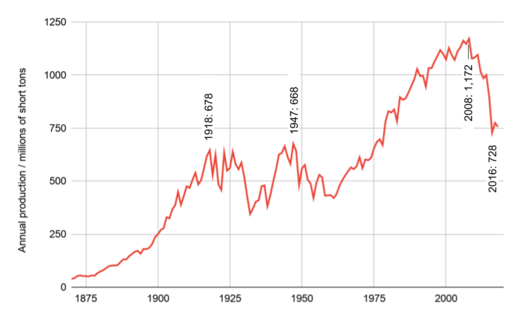Irreversible path to a net-zero economy: How Biden's climate agenda leverages capitalism to checkmate the right
"An irreversible path to a net-zero economy."
That is how the Biden White House described the ambition of his administration on climate policy on Wednesday, as the President signed a set of executive orders that can only be described as going all-in on the fight to battle against the climate crisis.
With the stroke of a pen, the President suspended new oil and gas leasing on federal land, put the climate crisis at the center of domestic and foreign policy, and directed the federal government to phase out internal combustion engines from its fleet of some 650,000 vehicles. He also directed the federal government to ensure 40% of its investments go to disadvantaged communities, a major step towards climate justice.
The plan was so bold that it took by surprise even the people who have been hard-pressed to give Biden credit throughout the campaign for his climate plan, doubting that he would make a serious effort to implement it once in office. Rep. Alexandria Ocasio-Cortez described the President's move as 'extraordinarily encouraging' on MSNBC's All In with Chris Hayes. While I have not been a fan of either Hayes or Ocasio-Cortez, this interview is worth watching.
As much as progressives are excited about the bold vision Biden has presented - driving toward a fully carbon-neutral energy production sector by 2035 and an emission-free economy by 2050 - Republicans have already signaled that they will put up every legislative roadblock they can against it. Some coal state Democrats, like Joe Manchin of West Virginia, may not be so hot on far-reaching legislative action, either. Outside what may be possible through funding measures (and thus the use of budget reconciliation rules in the Senate), any legislative progress that requires getting 60 votes in the Senate appears unattainable.
What President Biden will need, if the goals he has set and climate scientists agree are essential to protect our planet from climate catastrophe are to be met, is unprecedented cooperation from the private sector.
The unexpected good news? He's likely to get it.
First, the clean power industry is no longer in its nascence; it is now somewhat of a behemoth. The global renewable energy sector drew new investments of over $300 billion in 2019, and the its market is growing rapidly past $1 trillion a year. While the global oil and gas market is bigger still, at $3.3 trillion, its growth has stalled and hit especially hard by the pandemic.
And that new kid on the block, clean power, is ready to play. Heather Zichal, CEO of the American Clean Power Association, welcomed Biden's ambitious action and said that her members were ready invest $1 trillion to make his vision a reality. Maria Korsnick, President and CEO of the Nuclear Energy Institute, made it clear that the nuclear industry intends to be a partner as well. It bears a reminder that nuclear energy currently account for a majority of American zero-carbon power production, and there is no path to global net-zero without nuclear power.
It isn't just the traditional competitors to gas and oil that are choosing sides. Industries traditionally dependent on fossil fuel are getting on board, too. A day after Biden's actions, General Motors announced that by 2035, it will phase out gasoline engines and only sell cars with zero tailpipe emission. GM and several other car manufacturers have already made a deal with California in which they will voluntarily increase their fuel economy standards to an average of 51 MPG by 2026, and the Biden administration is now working on making that a reality for all automakers.
In the meantime, top investors are demanding that companies invest heavily in clean energy and sustainability, and companies not generally thought of as being in the energy sector are making a difference. Microsoft, Salesforce, and others are making serious efforts to their assets carbon-neutral.
Even major gas and oil companies have been diversifying their energy portfolios for some time, and joining the party in bigger and better ways now would be in their best interest.
The thing about private sector investment at this scale - which is poised to be spurred and multiplied with the Biden Administration's focus on climate - is that there is no going back. Donald Trump tried to weaken President Obama's gas mileage standards and to strip California of its unique power to regulate tailpipe emissions, but was kneecapped on both ends when major automakers and California simply made a deal for those private companies, voluntarily, to abide by California standards. Many of America's largest economic sectors - large cities, states, and industry - continued to voluntarily curb emissions to meet standards set in the Paris Agreement even after Trump withdrew from it.
But the biggest example of the recent past in which market power simply overwhelmed bad public policy on climate was the story of the coal industry. Under President Obama, US coal production plummeted. It never recovered, despite Donald Trump's best efforts, because President Obama's policies and investments in clean energy - recall that the investment in clean energy under the Obama-Biden financial rescue plan in 2009 remains the largest such public investment to date - made coal obsolete and its competitors cheaper, in addition to being cleaner.

In other words, Obama used capitalism to do what he couldn't do through legislation, and Joe Biden is, wisely, is on track to multiply that effect several-fold.

